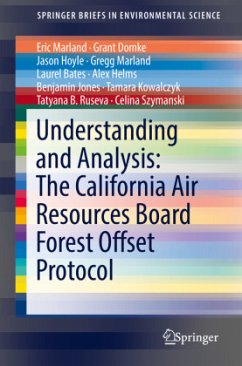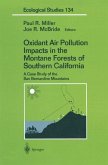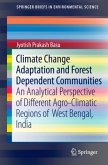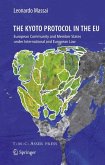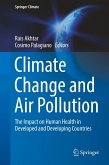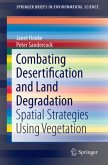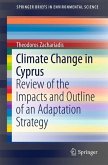This book is a product of the initial phase of a broader study evaluating the voluntary and regulatory compliance protocols that are used to account for the contributions of forests in U.S.-based greenhouse gas (GHG) mitigation programs. The research presented here is particularly concerned with these protocols' use of the USDA Forest Service's Forest Inventory and Analysis (FIA) data to describe forest conditions, ownership, and management scenarios, and is oriented towards providing regulators and other interested parties with an objective comparison of the options, uncertainties, and opportunities available to offset GHG emissions through forest management. Chapters focus on the protocols for recognizing forest carbon offsets in the California carbon cap-and-trade program, as described in the Compliance Offset Protocol; U.S. Forest Projects (California Air Resources Board, 2011).
Readers will discover the protocols used for quantifying the offset of GHG emissionsthrough forest-related project activity. As such, its scope includes a review of the current methods used in voluntary and compliance forest protocols, an evaluation of the metrics used to assign baselines and determine additionality in the forest offset protocols, an examination of key quantitative and qualitative components and assumptions, and a discussion of opportunities for modifying forest offset protocols, in light of the rapidly changing GHG-related policy and regulatory environment. Finally, the report also discusses accounting and policy issues that create potential barriers to participation in the California cap-and-trade program, and overall programmatic additionality in addressing the needs of a mitigation strategy.
Readers will discover the protocols used for quantifying the offset of GHG emissionsthrough forest-related project activity. As such, its scope includes a review of the current methods used in voluntary and compliance forest protocols, an evaluation of the metrics used to assign baselines and determine additionality in the forest offset protocols, an examination of key quantitative and qualitative components and assumptions, and a discussion of opportunities for modifying forest offset protocols, in light of the rapidly changing GHG-related policy and regulatory environment. Finally, the report also discusses accounting and policy issues that create potential barriers to participation in the California cap-and-trade program, and overall programmatic additionality in addressing the needs of a mitigation strategy.

